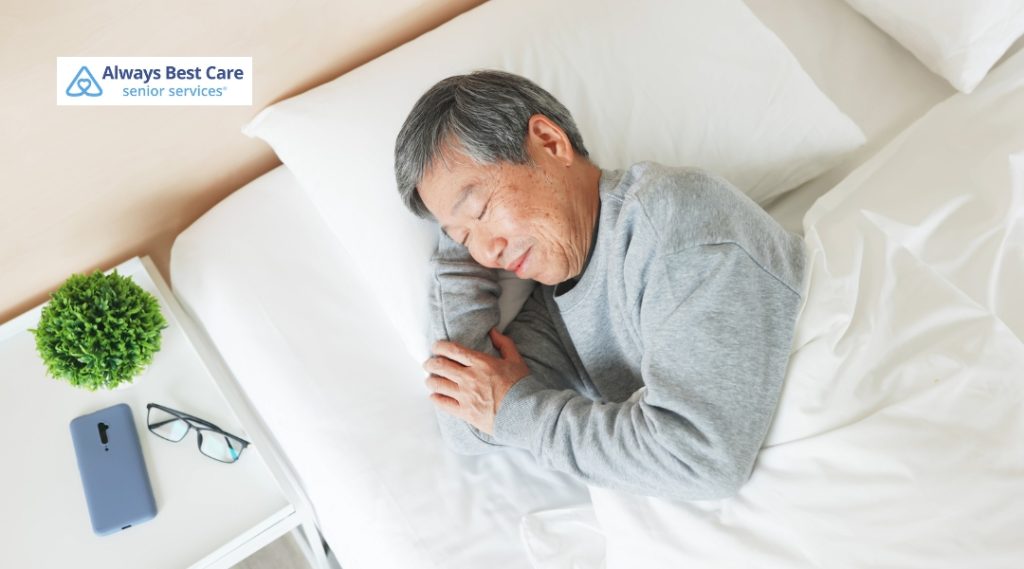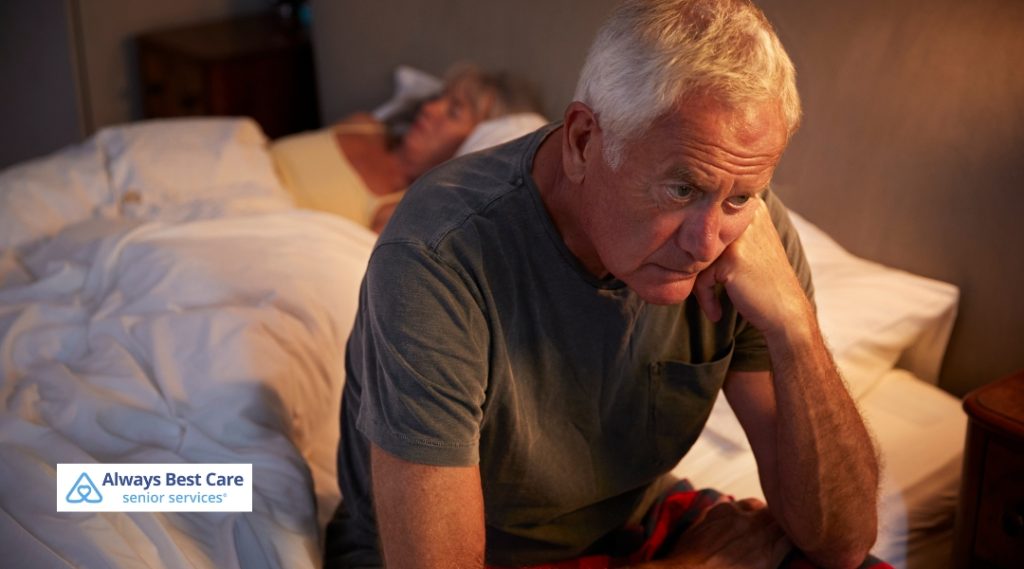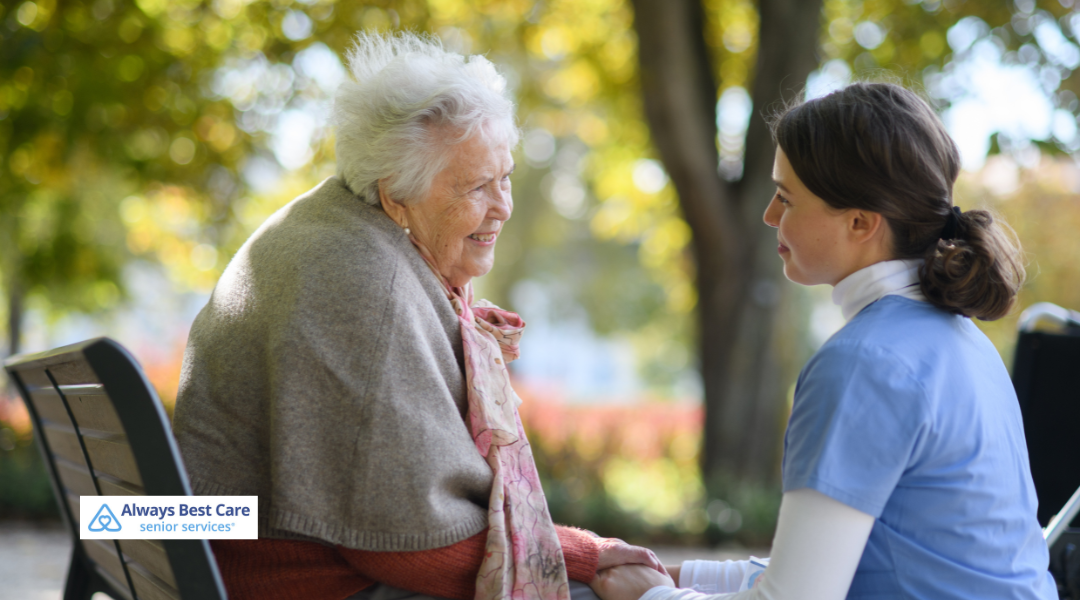Quality Sleep for Seniors: Tips to Fight Insomnia in Fletcher, NC

Quality sleep is one of the most underrated aspects of good health, especially for seniors. As we age, our sleep patterns can change, and for many seniors in Fletcher, NC, getting a restful night’s sleep can become more difficult.
Sleep plays a vital role in keeping our minds sharp, our bodies strong, and our emotions balanced. But insomnia doesn’t have to rule your nights. With the right strategies, seniors can regain control of their sleep habits and feel more energized each day.
Table of Contents
Understanding Insomnia in Seniors
As we get older, our sleep can become more fragmented. It’s not uncommon for seniors to find themselves waking up frequently throughout the night or having trouble falling asleep in the first place.
But why does this happen?
There are a few reasons why seniors in Fletcher might struggle with sleep. It could be due to medical conditions, medications, lifestyle habits, or stress.

The Link Between Sleep and Health
Did you know that poor sleep can affect more than just how tired you feel the next day? For seniors, sleep impacts everything from memory and cognitive function to heart health and emotional well-being.
Getting a good night’s rest can help you maintain a healthy weight, improve immune function, and even manage stress.
Recognizing the Symptoms of Insomnia
If you’re having trouble falling asleep, waking up multiple times during the night, or waking up too early and not being able to fall back asleep, you might be dealing with insomnia.

Why Do Seniors Sleep So Much?
Have you ever wondered, “Why do seniors sleep so much?”
As we age, our sleep needs can change. Seniors tend to need the same amount of sleep, but the way they sleep can be different. They may take more naps during the day or sleep for longer stretches.
It’s not that seniors are lazier or less active, but their sleep cycles naturally change over time. However, excessive daytime sleepiness can also be a sign that something is off, like an underlying health condition or an imbalance in their sleep schedule.
4 Tips to Improve Seniors’ Sleep
- Establish Healthy Sleep Habits: As mentioned before, sticking to a routine is key. Try to go to bed and wake up at the same time each day, even on weekends. This helps regulate your internal clock and improve the quality of your sleep.
- Get Plenty of Sunlight: Exposure to natural light during the day helps regulate your body’s internal clock and can make it easier to fall asleep at night. If you’re having trouble with sleep, try walking around Fletcher during daylight hours to soak in some sunlight.
- Relax Before Bed: A relaxing bedtime routine can signal to your body that it’s time to wind down. Consider activities like reading, listening to calming music, or practicing relaxation techniques such as deep breathing or meditation.
- Limit Screen Time: The blue light emitted by phones, tablets, and TVs can interfere with your ability to fall asleep. Try to avoid using electronics for at least an hour before bed.

FAQs About Sleep Patterns in Seniors
Q: How much sleep do seniors need?
A: Seniors typically need about 7-9 hours of sleep per night, though it can vary based on individual health and lifestyle. If you’re getting less than this and feeling tired during the day, it’s worth looking into ways to improve sleep quality.
Q: Can napping during the day affect my sleep at night?
A: Yes, long naps during the day can interfere with nighttime sleep, especially if they’re too late in the afternoon. If you need to nap, keep it to 20-30 minutes and do it earlier in the day.
Q: What can I do if I wake up in the middle of the night and can’t fall back asleep?
A: If you wake up and can’t get back to sleep, try not to stress about it. Keep the lights dim and avoid looking at your phone or clock. Reading a book or practicing relaxation techniques can help you drift back to sleep.
Q: How can Always Best Care of Asheville help with sleep issues?
A: We offer personalized care services that can help reduce stress, create a comfortable environment, and support daily routines—all of which can improve sleep quality. If sleep problems persist, we can work with your healthcare provider to find effective solutions.
How Always Best Care of Asheville Can Help
At Always Best Care of Asheville, we understand the importance of quality sleep for seniors. That’s why we offer services that support sleep wellness, from helping with bedtime routines to providing companionship and assistance around the home.
Our caregivers can help seniors with daily tasks, light housekeeping, and medication reminders, all of which can reduce stress and create a more restful environment. If sleep issues persist, we can work with you and your healthcare provider to find the best solutions for improving sleep.
If you or a loved one is struggling with insomnia and needs extra support, we are here to help. Contact Always Best Care of Asheville at (828) 676-2939 to schedule a care consultation and learn how our in-home care services can improve your quality of life. A restful night’s sleep is just a call away.





